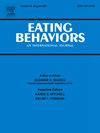认知不灵活性缓和了男性对肌肉力量的驱动和功能失调运动之间的联系
IF 2.4
3区 医学
Q2 PSYCHIATRY
引用次数: 0
摘要
对肌肉的追求,即对高肌肉体格的社会标准的关注,越来越受到男性的关注。功能失调的运动与肌肉的驱动有关,并导致无数负面的身体和心理后果。认知缺乏灵活性,即难以适应不断变化的环境,是一种跨精神疾病的跨诊断机制,包括功能失调的运动。本研究评估了认知不灵活性作为男性肌肉动力和功能障碍运动之间关系的调节因素。方法大学生男性(n = 243,白人53.5%)完成了自我报告测量,评估肌肉力量驱动、功能障碍运动、一般和特定领域认知不灵活性。适度分析评估了认知不灵活性是否调节了肌肉动力和功能障碍运动之间的关系。结果特定于食物/运动和体重/体型的认知不灵活性调节了肌肉行为驱动与功能障碍运动之间的关系(R2分别= 0.01,0.03)。一般的认知不灵活性并没有缓和这种关系。态度(r(237) = 0.25, p <;.001)和行为(r(237) = 0.53, p <;.001)与肌肉化驱动相关,与功能障碍运动呈正相关。结论:研究结果表明,特定领域的认知不灵活性增加了高肌肉动力男性运动功能障碍的风险。研究结果表明,针对认知不灵活性的干预措施可能有助于减轻这一人群中有问题的运动的风险。本文章由计算机程序翻译,如有差异,请以英文原文为准。
Cognitive inflexibility moderates the association between drive for muscularity and dysfunctional exercise in men
Objective
Drive for muscularity, a concern with meeting societal standards for a highly muscular physique, is a rising concern among men. Dysfunctional exercise is associated with drive for muscularity and leads to a myriad of negative physical and psychosocial outcomes. Cognitive inflexibility, a difficulty adapting to changing circumstances, is a transdiagnostic mechanism across psychiatric conditions, including dysfunctional exercise. This study evaluated cognitive inflexibility as a moderator of the relationship between drive for muscularity and dysfunctional exercise in men.
Methods
Undergraduate men (n = 243, 53.5% White) completed self-report measures assessing drive for muscularity, dysfunctional exercise, and general and domain-specific cognitive inflexibility. Moderation analyses assessed whether cognitive inflexibility moderated the relationship between drive for muscularity and dysfunctional exercise.
Results
Cognitive inflexibility specific to food/exercise and weight/shape moderated the relationship between drive for muscularity behaviors and dysfunctional exercise (R2 = 0.01, 0.03 respectively). General cognitive inflexibility did not moderate the relationship. Attitudes (r(237) = 0.25, p < .001) and behaviors (r(237) = 0.53, p < .001) related to a drive for muscularity were positively associated with dysfunctional exercise.
Conclusion
Results suggest that domain-specific cognitive inflexibility amplifies the risk of dysfunctional exercise in men with a high drive for muscularity. Findings suggest that interventions targeting cognitive inflexibility may help mitigate the risk of problematic exercise in this population.
求助全文
通过发布文献求助,成功后即可免费获取论文全文。
去求助
来源期刊

Eating behaviors
Multiple-
CiteScore
4.20
自引率
3.60%
发文量
65
审稿时长
60 days
期刊介绍:
Eating Behaviors is an international peer-reviewed scientific journal publishing human research on the etiology, prevention, and treatment of obesity, binge eating, and eating disorders in adults and children. Studies related to the promotion of healthy eating patterns to treat or prevent medical conditions (e.g., hypertension, diabetes mellitus, cancer) are also acceptable. Two types of manuscripts are encouraged: (1) Descriptive studies establishing functional relationships between eating behaviors and social, cognitive, environmental, attitudinal, emotional or biochemical factors; (2) Clinical outcome research evaluating the efficacy of prevention or treatment protocols.
 求助内容:
求助内容: 应助结果提醒方式:
应助结果提醒方式:


